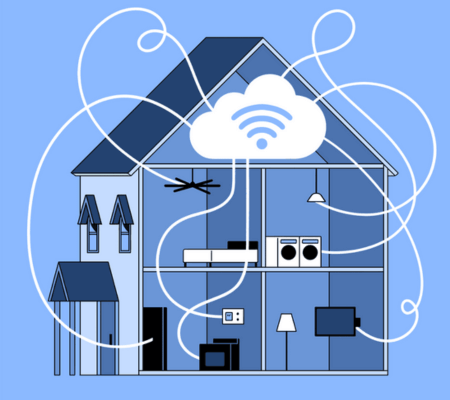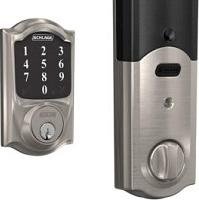Welcome to the world of home security! When it comes to protecting our homes and loved ones, we all want nothing but the best. And that’s where wired window alarm sensors come into play. These sleek and sophisticated devices are designed to provide an extra layer of security for your windows, ensuring you have peace of mind knowing that any unauthorized entry will be immediately detected.
In this blog post, we’ll dive into the fascinating world of wired window alarm sensors – how they work, their benefits, different types available in the market, the installation process, as well as some maintenance and troubleshooting tips. So, let’s buckle up and explore why these little wonders are a game-changer for keeping your home safe and secure!
Table of Contents
ToggleHow do Wired Window Alarm Sensors Work?
Wired window alarm sensors are an essential component of any home security system. But how exactly do they work to keep your home safe? Let’s dive into the inner workings of these innovative devices.
At their core, wired window alarm sensors detect changes in the electrical circuit connected to your windows. When a window is closed, the circuit remains intact and no alarm is triggered. However, if someone attempts to open or break the window, it disrupts the circuit and sends a signal to the control panel.
Once the control panel receives this signal, it activates an audible alarm or sends a notification to your smartphone or monitoring service. This prompt response gives you peace of mind knowing that any unauthorized entry will be immediately detected.
To achieve this functionality, wired window alarm sensors typically consist of two main components: a magnet and a sensor. The magnet is attached to one part of the window frame while the sensor is affixed to another part. When properly aligned and closed, these two components create a complete circuit.
When an intruder tries tampering with or opening the window, it causes misalignment between the magnet and sensor, breaking the circuit and triggering an alert.
Wired window alarm sensors provide effective protection against potential break-ins by detecting disturbances in your windows’ electrical circuits. Their ability to promptly notify homeowners adds an extra layer of security for ultimate peace of mind.
Benefits of Using a Wired Window Alarm Sensor
When it comes to home security, there are many options available, but one that stands out is the wired window alarm sensor. These sensors offer numerous benefits that can greatly enhance the safety of your home.
First and foremost, wired window alarm sensors provide reliable protection against break-ins. They are specifically designed to detect any opening or tampering with the windows in your home. This means that if someone tries to force open a window or break the glass, the sensor will immediately trigger an alarm. This not only alerts you to potential intruders but also deters them from attempting to enter your property in the first place.
Another benefit of wired window alarm sensors is their durability and longevity. Unlike wireless sensors that rely on batteries, these sensors are hardwired directly into your home’s security system. This ensures a consistent power source and eliminates the need for constant battery replacements.
Furthermore, wired window alarm sensors can be integrated into a comprehensive security system that includes other devices such as door alarms and motion detectors. This allows for seamless monitoring of all entry points in your home, providing you with complete peace of mind.
In addition to enhancing security, these sensors can also help save energy by integrating with smart home automation systems. By connecting the sensor to your HVAC system or thermostat, you can automatically adjust temperature settings when windows are opened or closed.
Using a wired window alarm sensor offers multiple advantages for homeowners looking to bolster their security measures. From reliable protection against break-ins to energy efficiency capabilities, these sensors provide peace of mind and convenience.
Types of Wired Window Alarm Sensors
When it comes to securing your home or office, wired window alarm sensors are an excellent choice. These sensors come in different types, each designed to meet specific needs and preferences.
1. Magnetic Contacts: This type of sensor consists of two parts – a magnet and a switch. The magnet is attached to the window frame while the switch is placed on the window itself. When the window is closed, the magnet aligns with the switch, completing the circuit. If someone tries to open the window when the system is armed, it will trigger an alarm.
2. Vibration Sensors: These sensors detect any movement or vibration on your windows. They are ideal for ground-level windows or those vulnerable to break-ins.
3. Glass Break Detectors: As their name suggests, these sensors pick up sound frequencies associated with breaking glass. They can cover multiple windows within range and provide an added layer of security against intruders.
4. Photoelectric Beams: This type of sensor uses infrared technology to create invisible beams across your windows’ line of sight. If someone interrupts these beams by opening or breaking a window, it triggers an alert.
Each type has advantages and limitations depending on your security requirements and budget constraints.
Installation Process for a Wired Window Alarm Sensor
The installation process for a wired window alarm sensor is relatively straightforward. It typically involves a few basic steps that anyone with basic DIY skills can complete.
First, you will need to gather all the necessary tools and materials. This includes the wired window alarm sensor itself, a drill, screws or adhesive strips for mounting, and any additional wiring or connectors that may be required.
Next, choose the location for your sensor. Ideally, it should be placed on the frame of the window near where it opens or slides. Clean the surface thoroughly before attaching the sensor to ensure proper adhesion.
Once you have chosen the location, use a drill to create pilot holes if necessary. Then, attach the sensor using screws or adhesive strips according to the manufacturer’s instructions.
After securely fastening the sensor in place, connect any necessary wiring following the provided diagrams or instructions. This may involve connecting wires from other sensors or control panels, depending on your specific setup.
Test your newly installed wired window alarm sensor to ensure it is functioning properly. Arm your security system and open and close each window with a connected sensor to verify that it triggers an alert when opened.
By following these steps carefully and paying attention to detail during installation, you can enjoy added peace of mind knowing that reliable wired window alarm sensors protect your home.
Maintenance and Troubleshooting Tips for Wired Window Alarm Sensors
1. Regular Inspection: To ensure the proper functioning of your wired window alarm sensors, it’s important to conduct regular inspections. Check for any loose wires or connections that may need tightening or replacing.
2. Cleanliness is Key: Clean your wired window alarm sensors by regularly dusting them off with a soft cloth. Dirt and debris can interfere with their performance, so make sure to keep them free from any obstructions.
3. Test the System: Periodically test your wired window alarm sensors to verify that they are working correctly. This can be done by opening and closing the windows while monitoring the sensor’s response.
4. Battery Replacement: Some wired window alarm sensors may have batteries in them for backup power during electrical outages. It’s crucial to replace these batteries as per manufacturer recommendations to ensure uninterrupted functionality.
5. Address False Alarms Promptly: Troubleshoot the issue immediately if you experience frequent false alarms with your wired window alarm sensors. Check if there are any objects obstructing the sensor’s field of view or adjust its sensitivity settings accordingly.
6. Seek Professional Assistance: If you encounter persistent issues or are unsure how to resolve a problem with your wired window alarm sensor, it is recommended to consult a professional technician specializing in security systems.
7. Wired Window Alarm Sensor User Manual: Referencing the user manual provided by the manufacturer can provide valuable troubleshooting tips specific to your model of wired window alarm sensor
Remember, proper maintenance and timely troubleshooting can help maximize the effectiveness of your wired window alarm sensors and provide you with peace of mind knowing that your home is secure.
Conclusion: Why Choose a Wired Window Alarm Sensor?
When securing your home or business, you want a reliable and effective alarm system that can provide peace of mind. That’s where wired window alarm sensors come in. These devices offer several advantages over their wireless counterparts, making them an excellent choice for anyone looking to enhance the security of their property.
First and foremost, wired window alarm sensors are known for their reliability. Wireless sensors provide a consistent connection between the sensor and the control panel, unlike wireless systems that can be susceptible to interference or signal loss. You won’t have to worry about false alarms or missed alerts when using a wired system.
Another benefit of choosing a wired window alarm sensor is its durability. Since these sensors are hardwired into your property’s electrical system, they don’t rely on batteries for power. This ensures they will continue functioning even during power outages or when batteries fail in other alarms.
Additionally, wired window alarm sensors offer greater flexibility in terms of customization and integration with other security components. You can connect multiple sensors throughout your home or business and integrate them with your security system for comprehensive protection.
Installation may require professional assistance due to the wiring involved, but once installed, maintenance is minimal compared to battery-powered alternatives. With proper care and occasional troubleshooting, your wired window alarm sensor will continue working reliably year after year.
In conclusion (without stating “in conclusion”), choosing a wired window alarm sensor offers numerous benefits, including reliability, durability, customization options,and seamless integration with other security components.
These factors make them an ideal choice for those seeking enhanced home or business protection.
So, if you’re looking for robust security solutions that deliver peace of mind without compromising quality, opting for a wired window alarm sensor makes perfect sense!











